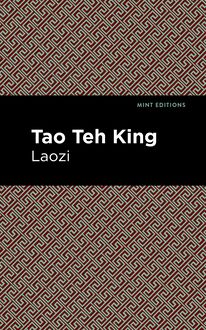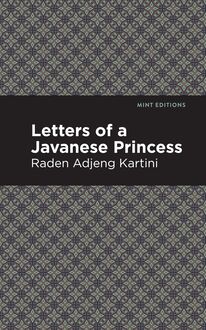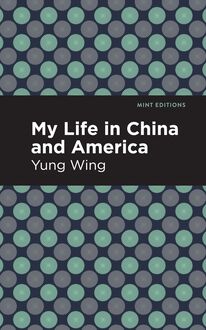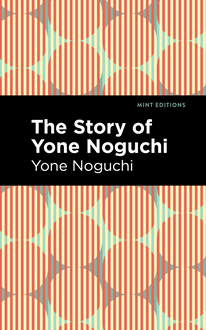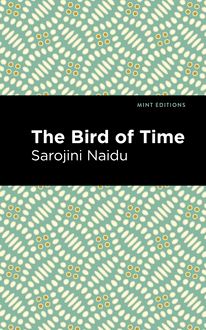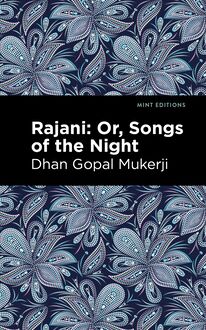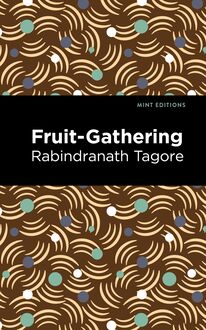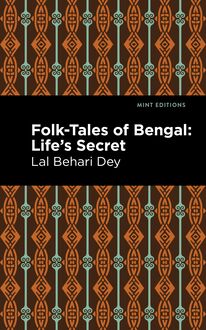-
 Univers
Univers
-
 Ebooks
Ebooks
-
 Livres audio
Livres audio
-
 Presse
Presse
-
 Podcasts
Podcasts
-
 BD
BD
-
 Documents
Documents
-
- Cours
- Révisions
- Ressources pédagogiques
- Sciences de l’éducation
- Manuels scolaires
- Langues
- Travaux de classe
- Annales de BEP
- Etudes supérieures
- Maternelle et primaire
- Fiches de lecture
- Orientation scolaire
- Méthodologie
- Corrigés de devoir
- Annales d’examens et concours
- Annales du bac
- Annales du brevet
- Rapports de stage
La lecture à portée de main
Vous pourrez modifier la taille du texte de cet ouvrage
Découvre YouScribe en t'inscrivant gratuitement
Je m'inscrisDécouvre YouScribe en t'inscrivant gratuitement
Je m'inscrisEn savoir plus
Vous pourrez modifier la taille du texte de cet ouvrage
En savoir plus

Description
Botchan (1906) is a novel by Natsume Sōseki. Inspired by his experience as a teacher on the island of Shikoko, Sōseki composed a beloved tale of growth and moral decency that continues to be read in Japan and around the world to this day. Filled with humorous asides and heartwarming scenes, Botchan is a classic bildungsroman from one of Japan’s most successful twentieth century writers.
Ever since his childhood days in Tokyo, Botchan has experienced bouts of “hereditary recklessness,” an inability to think and act as others expect him to. Frequently injured, always in trouble, he develops a reputation in his neighborhood as a young rapscallion, a misfit at home and in school. When his mother dies unexpectedly, Botchan is raised by Kiyo, his family’s elderly servant, who sees something in him no one else has been able to recognize. Through positive reinforcement and a focus on fostering good morals, she helps Botchan achieve a certain amount of respectability without forcing him to sacrifice his fiercely independent nature. He excels in school and finds a job as a middle school math teacher on the island of Shikoku. Thinking the days of schoolyard drama are behind him, he is surprised to discover that the antics and conflicts inherent to boyhood are rampant among his fellow teachers. Joining forces with Porcupine, he sets out to dethrone head teacher Red Shirt, who indiscriminately wields his power over colleagues and students alike. Hilarious and eminently human, Botchan is a beloved story of class, morality, and conflict from a master of Japanese fiction.
With a beautifully designed cover and professionally typeset manuscript, this edition of Natsume Sōseki’s Botchan is a classic work of Japanese literature reimagined for modern readers.
Sujets
Informations
| Publié par | Mint Editions |
| Date de parution | 27 avril 2021 |
| Nombre de lectures | 0 |
| EAN13 | 9781513288307 |
| Langue | English |
| Poids de l'ouvrage | 1 Mo |
Informations légales : prix de location à la page 0,0350€. Cette information est donnée uniquement à titre indicatif conformément à la législation en vigueur.
Extrait
Botchan
Natsume Sōseki
Botchan was first published in 1906.
This edition published by Mint Editions 2021.
ISBN 9781513283289 | E-ISBN 9781513288307
Published by Mint Editions ®
minteditionbooks.com
Publishing Director: Jennifer Newens
Design & Production: Rachel Lopez Metzger
Project Manager: Micaela Clark
Translated by Yasotaro Morri
Typesetting: Westchester Publishing Services
CONTENTS I II III IV V VI VII VIII IX X XI
I
B ecause of an hereditary recklessness, I have been playing always a losing game since my childhood. During my grammar school days, I was once laid up for about a week by jumping from the second story of the school building. Some may ask why I committed such a rash act. There was no particular reason for doing such a thing except I happened to be looking out into the yard from the second floor of the newly-built school house, when one of my classmates, joking, shouted at me; “Say, you big bluff, I’ll bet you can’t jump down from there! O, you chicken-heart, ha, ha!” So I jumped down. The janitor of the school had to carry me home on his back, and when my father saw me, he yelled derisively, “What a fellow you are to go and get your bones dislocated by jumping only from a second story!”
“I’ll see I don’t get dislocated next time,” I answered.
One of my relatives once presented me with a pen-knife. I was showing it to my friends, reflecting its pretty blades against the rays of the sun, when one of them chimed in that the blades gleamed all right, but seemed rather dull for cutting with.
“Rather dull? See if they don’t cut!” I retorted.
“Cut your finger, then,” he challenged. And with “Finger nothing! Here goes!” I cut my thumb slant-wise. Fortunately the knife was small and the bone of the thumb hard enough, so the thumb is still there, but the scar will be there until my death.
About twenty steps to the east edge of our garden, there was a moderate-sized vegetable yard, rising toward the south, and in the centre of which stood a chestnut tree which was dearer to me than life. In the season when the chestnuts were ripe, I used to slip out of the house from the back door early in the morning to pick up the chestnuts which had fallen during the night, and eat them at the school. On the west side of the vegetable yard was the adjoining garden of a pawn shop called Yamashiro-ya. This shopkeeper’s son was a boy about 13 or 14 years old named Kantaro. Kantaro was, it happens, a mollycoddle. Nevertheless he had the temerity to come over the fence to our yard and steal my chestnuts.
One certain evening I hid myself behind a folding-gate of the fence and caught him in the act. Having his retreat cut off he grappled with me in desperation. He was about two years older than I, and, though weak-kneed, was physically the stronger. While I wallopped him, he pushed his head against my breast and by chance it slipped inside my sleeve. As this hindered the free action of my arm, I tried to shake him loose, though, his head dangled the further inside, and being no longer able to stand the stifling combat, he bit my bare arm. It was painful. I held him fast against the fence, and by a dexterous foot twist sent him down flat on his back. Kantaro broke the fence and as the ground belonging to Yamashiro-ya was about six feet lower than the vegetable yard, he fell headlong to his own territory with a thud. As he rolled off he tore away the sleeve in which his head had been enwrapped, and my arm recovered a sudden freedom of movement. That night when my mother went to Yamashiro-ya to apologize, she brought back that sleeve.
Besides the above, I did many other mischiefs. With Kaneko of a carpenter shop and Kaku of a fishmarket, I once ruined a carrot patch of one Mosaku. The sprouts were just shooting out and the patch was covered with straws to ensure their even healthy growth. Upon this straw-covered patch, we three wrestled for fully half a day, and consequently thoroughly smashed all the sprouts. Also I once filled up a well which watered some rice fields owned by one Furukawa, and he followed me with kicks. The well was so devised that from a large bamboo pole, sunk deep into the ground, the water issued and irrigated the rice fields. Ignorant of the mechanical side of this irrigating method at that time, I stuffed the bamboo pole with stones and sticks, and satisfied that no more water came up, I returned home and was eating supper when Furukawa, fiery red with anger, burst into our house with howling protests. I believe the affair was settled on our paying for the damage.
Father did not like me in the least, and mother always sided with my big brother. This brother’s face was palish white, and he had a fondness for taking the part of an actress at the theatre.
“This fellow will never amount to much,” father used to remark when he saw me.
“He’s so reckless that I worry about his future,” I often heard mother say of me. Exactly; I have never amounted to much. I am just as you see me; no wonder my future used to cause anxiety to my mother. I am living without becoming but a jailbird.
Two or three days previous to my mother’s death, I took it into my head to turn a somersault in the kitchen, and painfully hit my ribs against the corner of the stove. Mother was very angry at this and told me not to show my face again, so I went to a relative to stay with. While there, I received the news that my mother’s illness had become very serious, and that after all efforts for her recovery, she was dead. I came home thinking that I should have behaved better if I had known the conditions were so serious as that. Then that big brother of mine denounced me as wanting in filial piety, and that I had caused her untimely death. Mortified at this, I slapped his face, and thereupon received a sound scolding from father.
After the death of mother, I lived with father and brother. Father did nothing, and always said “You’re no good” to my face. What he meant by “no good” I am yet to understand. A funny dad he was. My brother was to be seen studying English hard, saying that he was going to be a businessman. He was like a girl by nature, and so “sassy” that we two were never on good terms, and had to fight it out about once every ten days. When we played a chess game one day, he placed a chessman as a “waiter,”—a cowardly tactic this,—and had hearty laugh on me by seeing me in a fix. His manner was so trying that time that I banged a chessman on his forehead which was injured a little bit and bled. He told all about this to father, who said he would disinherit me.
Then I gave up myself for lost, and expected to be really disinherited. But our maid Kiyo, who had been with us for ten years or so, interceded on my behalf, and tearfully apologized for me, and by her appeal my father’s wrath was softened. I did not regard him, however, as one to be afraid of in any way, but rather felt sorry for our Kiyo. I had heard that Kiyo was of a decent, well-to-do family, but being driven to poverty at the time of the Restoration, had to work as a servant. So she was an old woman by this time. This old woman,—by what affinity, as the Buddhists say, I don’t know,—loved me a great deal. Strange, indeed! She was almost blindly fond of me,—me, whom mother, became thoroughly disgusted with three days before her death; whom father considered a most aggravating proposition all the year round, and whom the neighbors cordially hated as the local bully among the youngsters. I had long reconciled myself to the fact that my nature was far from being attractive to others, and so didn’t mind if I were treated as a piece of wood; so I thought it uncommon that Kiyo should pet me like that. Sometimes in the kitchen, when there was nobody around, she would praise me saying that I was straightforward and of a good disposition. What she meant by that exactly, was not clear to me, however. If I were of so good a nature as she said, I imagined those other than Kiyo should accord me a better treatment. So whenever Kiyo said to me anything of the kind, I used to answer that I did not like passing compliments. Then she would remark; “That’s the very reason I say you are of a good disposition,” and would gaze at me with absorbing tenderness. She seemed to recreate me by her own imagination, and was proud of the fact. I felt even chilled through my marrow at her constant attention to me.
After my mother was dead, Kiyo loved me still more. In my simple reasoning, I wondered why she had taken such a fancy to me. Sometimes I thought it quite futile on her part, that she had better quit that sort of thing, which was bad for her. But she loved me just the same. Once in, a while she would buy, out of her own pocket, some cakes or sweetmeats for me. When the night was cold, she would secretly buy some noodle powder, and bring all unawares hot noodle gruel to my bed; or sometimes she would even buy a bowl of steaming noodles from the peddler. Not only with edibles, but she was generous alike with socks, pencils, note books, etc. And she even furnished me,—this happened some time later,—with about three yen, I did not ask her for the money; she offered it from her own good will by bringing it to my room, saying that I might be in need of some cash. This, of course, embarrassed me, but as she was so insistent I consented to borrow it. I confess I was really glad of the money. I put it in a bag, and carried it in my pocket. While about the house, I happened to drop the bag into a cesspool. Helpless, I told Kiyo how I had lost the money, and at once she fetched a bamboo stick, and said she will get it for me. After a while I heard a splashing sound of water about our family well, and going there, saw Kiyo washing the bag strung on the end of the stick. I opened the bag and found the edict of the three one-yen bills turned to faint yellow and designs fading. Kiyo dried them at an open fire and handed them over to me, asking if they we
-
 Univers
Univers
-
 Ebooks
Ebooks
-
 Livres audio
Livres audio
-
 Presse
Presse
-
 Podcasts
Podcasts
-
 BD
BD
-
 Documents
Documents
-
Jeunesse
-
Littérature
-
Ressources professionnelles
-
Santé et bien-être
-
Savoirs
-
Education
-
Loisirs et hobbies
-
Art, musique et cinéma
-
Actualité et débat de société
-
Jeunesse
-
Littérature
-
Ressources professionnelles
-
Santé et bien-être
-
Savoirs
-
Education
-
Loisirs et hobbies
-
Art, musique et cinéma
-
Actualité et débat de société
-
Actualités
-
Lifestyle
-
Presse jeunesse
-
Presse professionnelle
-
Pratique
-
Presse sportive
-
Presse internationale
-
Culture & Médias
-
Action et Aventures
-
Science-fiction et Fantasy
-
Société
-
Jeunesse
-
Littérature
-
Ressources professionnelles
-
Santé et bien-être
-
Savoirs
-
Education
-
Loisirs et hobbies
-
Art, musique et cinéma
-
Actualité et débat de société
- Cours
- Révisions
- Ressources pédagogiques
- Sciences de l’éducation
- Manuels scolaires
- Langues
- Travaux de classe
- Annales de BEP
- Etudes supérieures
- Maternelle et primaire
- Fiches de lecture
- Orientation scolaire
- Méthodologie
- Corrigés de devoir
- Annales d’examens et concours
- Annales du bac
- Annales du brevet
- Rapports de stage

